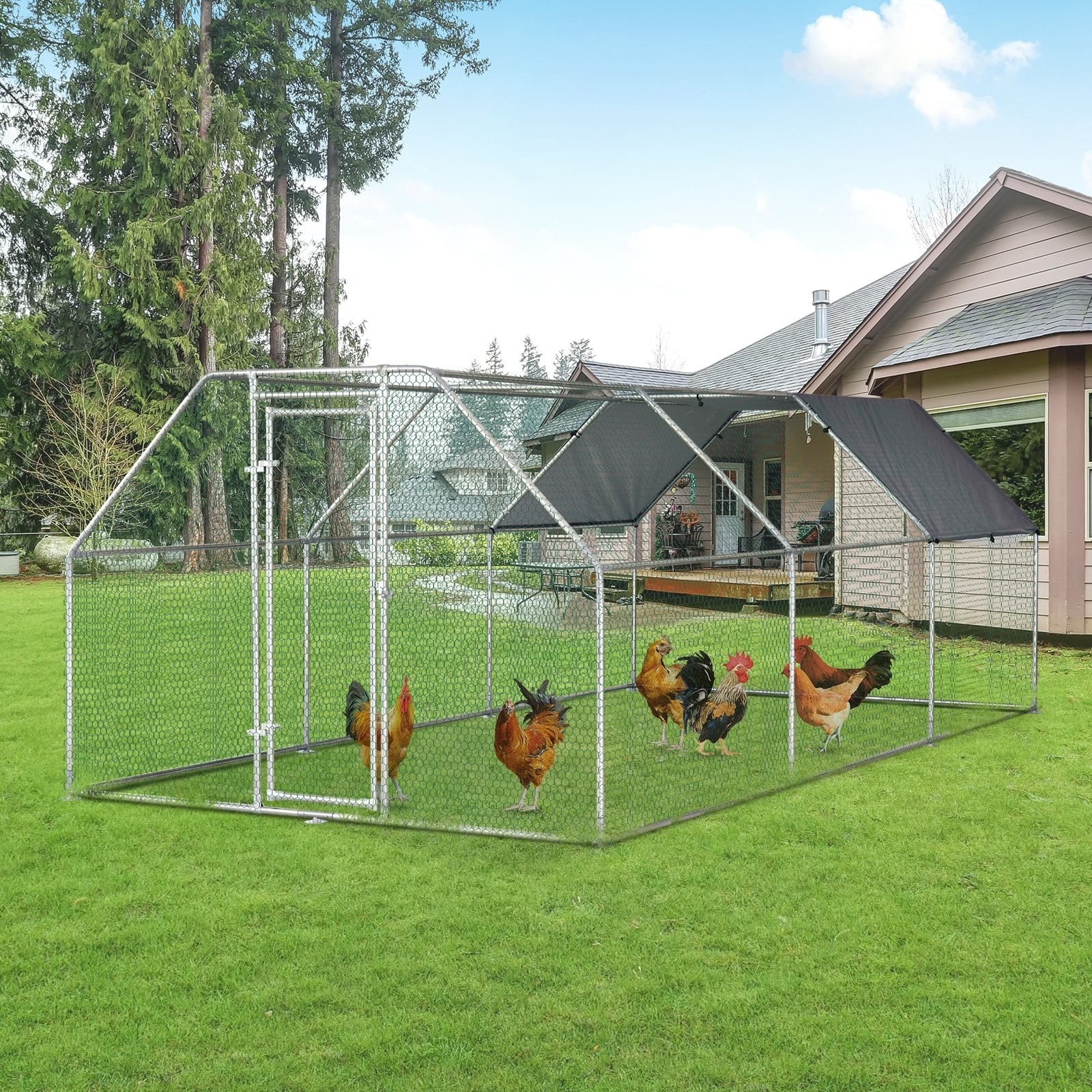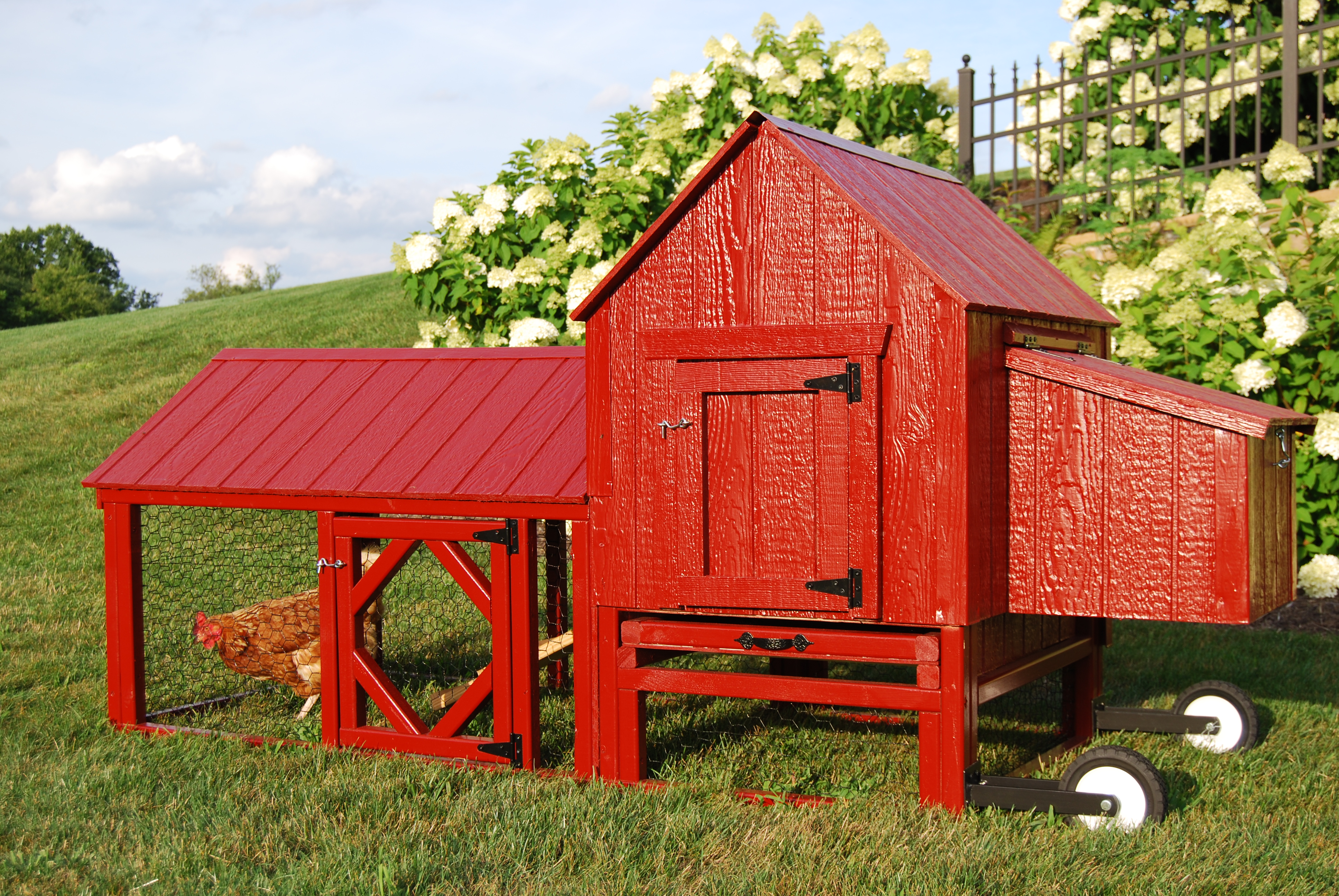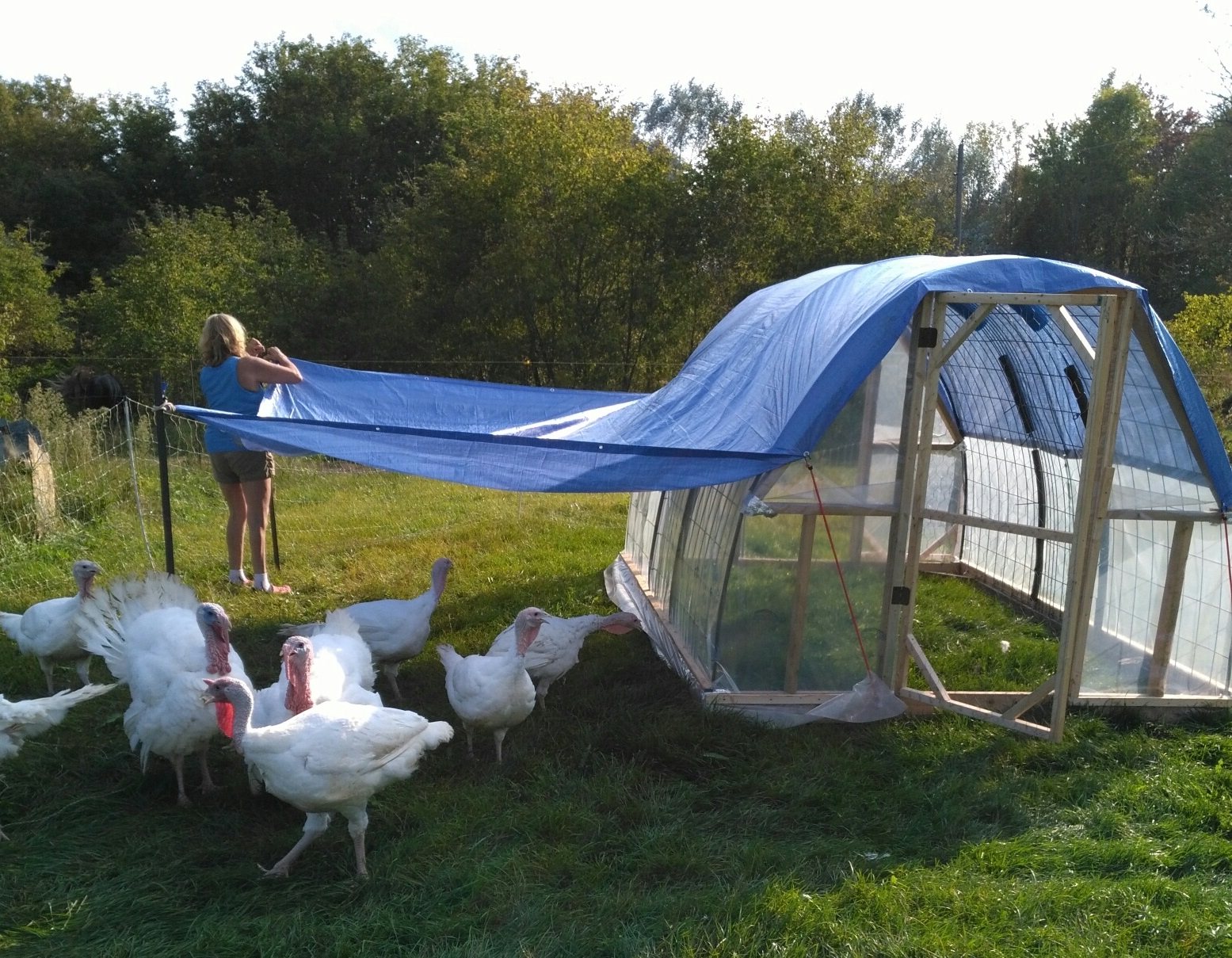
Without the end wall panels (D) in place to support the sides (C), the whole structure isn’t particularly strong, and the walls (C) may lean in a bit. I suggest spacing the screws about 1 foot apart.ģ. With the frame sitting directly on the floor, it is a straightforward matter to screw the sides (C) to the frame. I built the sides of the coop (C) out of 3/8-inch plywood ripped down to 2 1/2 feet wide. I like Rigid-Tie Angle by Simpson in particular because it features a flange that allows screw installation on the inside frame face, which adds quite a bit of stiffness.Ģ. To join the parts, I used galvanized angle brackets. I began this coop by constructing a frame from 2-by-4s (A, B). Long side floor framing: 2-by-4, 7 feet, 2 Short side floor framing: 2-by-4, 41 inches, 2 Side wall panels: 3/8-inch plywood, 7 feet by 2 1/2 feet, 2 End wall panels: 3/8-inch plywood, 3 1/2 feet by 4 feet, 2 Interior corner bracing: 2-by-4, 28 inches, 4 Front legs: 2-by-4, 51 inches, 2 Rear legs: 2-by-4, 45 inches, 2 Wheels: bicycle rims with wheels, 16 inches, 2 Axles: 1/2-inch bolts with lock nuts, 7 inches, 2 Window trim: scrap cedar 1-by-2, 14 inches, 8 Platform (floor): 1/2-inch plywood, 7 feet by 4 feet, 1 Rafters/roof cleats: 2-by-4, 7 feet, 3 Roof panels: 3/4-inch plywood, 35 inches by 30 inches, 6 End panel flap doors: 3/4-inch plywood, 14 inches by 20 inches, 2 Main side doors: 3/4-inch plywood, 26 inches by 22 1/2 inches, 2 Tracks for poop tray: 2-by-4, 82 inches, 2 Poop trays: 3/8-inch plywood, 40 inches by 18 inches, 2 Wheel supports: 2-by-4, 1 foot, 2 Handles: 2-by-2, 40 inches, 2 Roll roofing: 48 square feet Felt paper: 48 square feet Miscellaneous strips for trim: 3/4-inch pine or similar, 15 feet total Nest box sides: 3/4-inch plywood, 15 inches by 12 inches, 5 Nest box top: 3/4-inch plywood, 52 inches by 13 inches, 1 Roosting bars: 3/4-inch pine, 78 inches by 1 inch, 2 Roost supports: 2-by-4, 16 inches, 3 End panel window covers: 3/4-inch plywood, 11 inches by 11 inches, 2 Galvanized angle brackets Screws Hinges Staples Nails Chicken wire Brass handle Latches Movable Chicken Coop InstructionsĪs you follow the instructions and their corresponding photos, you should also refer to this letter-coded diagram of the coop. We also hoped to prompt the birds to use the roosts by modifying the tops of the nest boxes - they’re popular places to perch most of the time, but the angled design here prevents this. We reasoned that the trays could slide in a set of tracks so they wouldn’t get moved around, and the roosts could simply be moved out for hosing off. If we situated the roosts directly above a pair of removable trays, the trays would collect the majority of the chicken droppings, which could then be disposed of quite easily and with minimal fuss. My client mentioned this to me, and it made a lot of sense. I put a large set of doors on the end walls of the coop to provide great access to the coop’s spacious interior, and this paved the way for what I think is a pretty novel concept: the poop tray.

To simplify the cleanup process, we came up with a couple of ideas.
MOVABLE CHICKEN COOP INSTALL
Figuring out how best to install and support the wheels took some head-scratching, but I came up with a simple solution that works great. One or two people can easily wheel it around, and this type of structure fits into the category of “chicken rickshaws,” which are a nifty coop subgenre I’ve heard about but never seen.



MOVABLE CHICKEN COOP HOW TO
Whether you have an acre of land or an itty-bitty backyard, plenty of money to spend or hardly any, Art of the Chicken Coop will show you how to construct the perfect coop for your flock and space. The following is an excerpt from Art of the Chicken Coop by Chris Gleason (Fox Chapel Publishing, 2011).


 0 kommentar(er)
0 kommentar(er)
